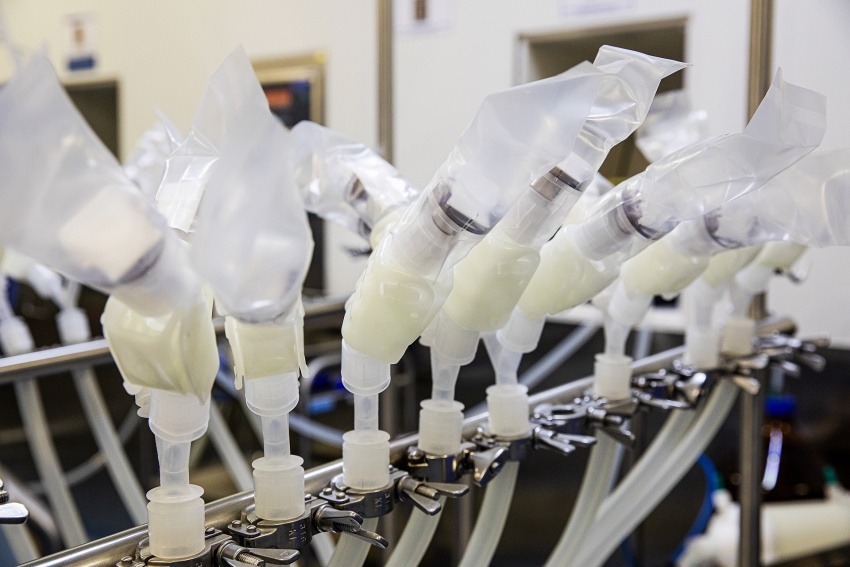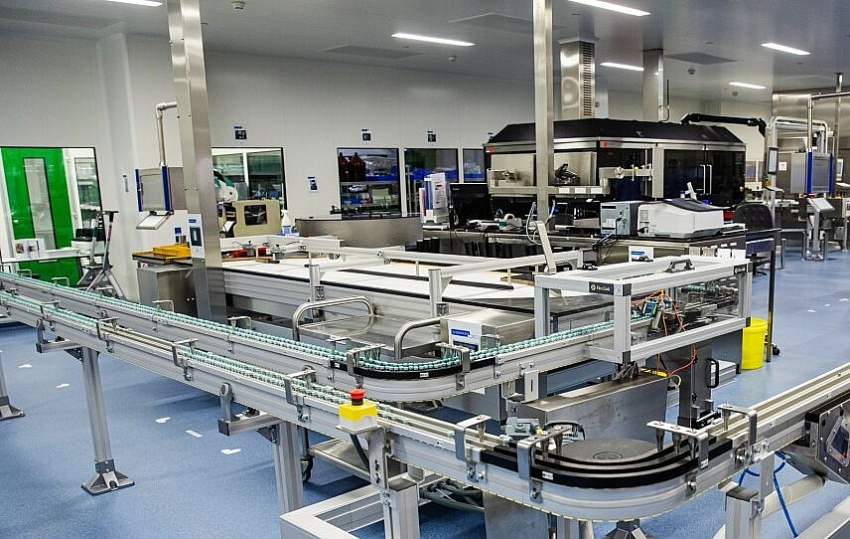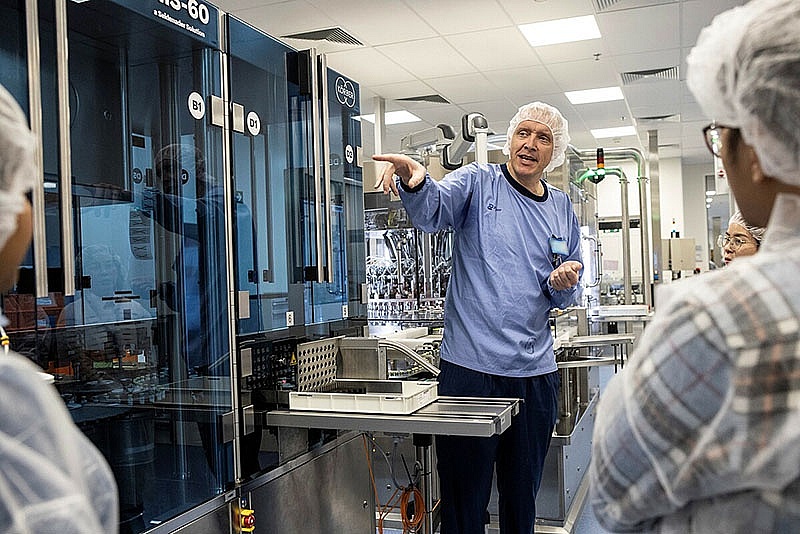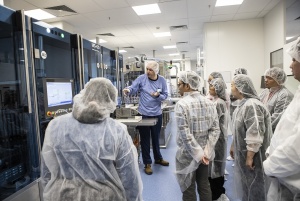The game-changers in pharmaceuticals
At Pfizer, new innovative vaccines are being studied to keep abreast of new viruses and bacteria that threaten human lives and livelihoods. They include a two-in-one flu and coronavirus jab, and an mRNA vaccine against influenza for adults.
Dr. Julia Spinardi, senior medical director for COVID-19 in emerging markets at Pfizer, said that the company was finalising the phase-three trials of its mRNA vaccine to protect adults from influenza.
“The trial will evaluate the efficacy, safety, tolerability, and immunogenicity of the mRNA influenza vaccine,” she said on October 24 in Brussels. “We are expecting to have results soon to present to the Food and Drug Administration.”
Meanwhile, Pfizer’s two-in-one flu and coronavirus jab will be moving into a final-stage trial in the coming months. With the result, the company and its German partner BioNTech have moved a step closer to receiving regulatory approval for the new vaccine, thus bringing new hope for the world about a combination shot for both diseases.
 |
| Pfizer vaccines |
Pfizer’s moves are being made after making the success of its COVID-19 vaccine, using mRNA technology. But Pfizer is not the only company in this race. US-based Moderna is also working on the combination vaccine against both and now moving to a phase three clinical trial.
According to experts, many years of intensive research into understanding mRNA enabled innovative companies to develop new vaccines that helped the world emerge from the recent pandemic. The technology is not new, but now scientists are looking to exploit it further in healthcare and epidemic control globally. mRNA vaccines are expected by scientists to have great potential in preventing the likes of HIV, cancer, or flu.
 |
| Pfizer global manufacturing plant in Puurs, Belgium |
Julien Guerrier, Ambassador of the European Union Delegation to Vietnam at the second Healthcare Innovation Forum in Hanoi in October said, “These mRNA vaccines could come out so quickly only because we had been working on mRNA technology for more than a decade.”
Guerrier was previously director of the European research and innovation funding programme Horizon Europe, which worked on gathering resources to fight the coronavirus.
Dr. Mark Fletcher, Pfizer’s medical and scientific affairs lead for respiratory vaccines, added that every time there is a new technology, scientists try it on influenza.
“Now that we have the mRNA technology, which has been profoundly important for the coronavirus, it has kicked off mRNA programmes and development for Pfizer,” he said. “One other thing that is remarkable about the mRNA technology is it allows the concept of combination shots with other vaccines.
 |
| Senior production manager Ben Mees introduced Pfizer’s vaccines production |
Vietnam is seeing a great opportunity to access the mRNA technology for vaccine production to ease disease burdens. The country is among five newly selected to receive mRNA vaccine technology transfer from a global biomanufacturing training hub established by the World Health Organization (WHO) in South Africa.
In May, the United Nations Development Programme (UNDP) and the Health Strategy and Policy Institute under Vietnam’s Ministry of Health (MoH) organised a workshop to disseminate the results of three studies on strengthening vaccine production and certification in Vietnam and to update on Vietnam’s participation in WHO’s mRNA technology transfer programme through the project, funded by the government of Japan through the UNDP.
According to the MoH, Vietnam recognises the need to strengthen its national vaccine production and certification capacity based on the successful application of mRNA vaccine technology during the pandemic. It includes participating in WHO's technology transfer programme in Cape Town.
Patrick Haverman, UNDP deputy resident representative in Vietnam said, "It is an important opportunity for Vietnam to access this key new technology for vaccine production. But it will also require careful consideration of the steps and timelines, the scale and sources of the required investment of funds, and the development of expertise to ensure this technology transfer's effectiveness and financial sustainability."
 |
According to Emin Turan, chairman of Pharma Group, which represents the innovative pharmaceutical industry in Vietnam, most countries around the globe have policies to attract investment in the pharmaceutical industry as the sustainable development of a country needs to rely on the foundation of sci-tech and innovation.
Of all industries - the innovative pharmaceutical industry has the highest investment in innovation and, since 2013, the industry has invested over $1 trillion in research and development (R&D).
"Pharma Group members are required to invest at least 10 per cent of their global sales in R&D. These investments are not limited to the healthcare sector, but have spill-over effects to other industries and bring enormous economic and social benefits through strengthening the innovation capacity of a country," said Turan at a VIR healthcare conference in July.
"This is the key value proposition of the innovative pharmaceutical sector as a key factor enabling countries for sustainable development in the future,” he added.
Vietnam is also a lucrative market for multinationals, as it has a growing demand for imported vaccines and innovative pharmaceutical products. European pharmaceutical companies provide the lion's share of 37.5 per cent of Vietnamese medicine imports, and more than 97 per cent of the materials imported for Vietnam’s domestic medicine production.
According to Julien Guerrier, the EU-Vietnam Free Trade Agreement has also incentivised foreign investment in the sector of pharmaceuticals to operate in Vietnam. In the past three years, the majority of innovative pharmaceutical companies, mostly from Europe, have established legal entities to import pharmaceuticals directly to Vietnam.
“As we navigate the challenges and opportunities of the 21st century, it is crucial that we embrace innovation as a driving force to ensure accessible, affordable, and high-quality healthcare for all," Guerrier said. "The Vietnamese government has a vision and is now working on a pharmaceutical law and a health insurance law. It is therefore the right time to develop a legal environment for the sector, which should be transparent, business conducive, and research.”
Aware of the importance of innovative pharmaceuticals, Deputy Minister of Health Do Xuan Tuyen said that pharmaceuticals are an indispensable element in disease prevention and treatment.
“If the world's pharma industry did not promptly carry out its research and produce vaccines in recent years, we could not have imagined what the situation would be like now for people's livelihoods," he told VIR. "Along with that, many previously dangerous diseases have now been cured thanks to innovative drugs and vaccines."
Tuyen elaborated that in addition to continuing the policy of developing generic drug production to ensure essential drugs for people’s health needs, Vietnam has policy orientations to develop research and receive tech transfer to produce branded, new, and specialised drugs, as well as vaccines and new biological products. The MoH has proposed adjusting the Law on Pharmacy and related legal documents in line with this orientation.
 | Fostering pharma-healthcare growth and the spillover effects Vietnam’s pharma and healthcare sector is entering a new stage of development, requiring the adoption of innovative approaches and clearly defined policy priorities to achieve long-term goals. Chairman of the Pharma Group Emin Turan talked to VIR’s Bich Thuy about the importance of a new resolution to the sector’s sustainable future. |
 | Opportunities abound for innovative pharma industry Countries around the world are hoping to entice investment for their innovative pharmaceutical industries in order to bring socioeconomic benefits towards sustainable development strategies. Emin Turan, chairman of Pharma Group, talked to VIR’s Bich Thuy about the specific opportunities for Vietnam in this regard. |
 | Pfizer takes big steps with new vaccines Biopharmaceutical company Pfizer has announced that its two-in-one flu and COVID-19 jab will be moving into a final-stage trial in the coming months, along with the finalisation of the phase-three trials for its mRNA vaccine against influenza for adults. |
What the stars mean:
★ Poor ★ ★ Promising ★★★ Good ★★★★ Very good ★★★★★ Exceptional
Themes: Healthcare Platform
- PM outlines new tasks for healthcare sector
- Opella and Long Chau join forces to enhance digestive and bone health
- Hanoi intensifies airport monitoring amid Nipah disease risks
- Cosmetics rules set for overhaul under draft decree
- Policy obstacles being addressed in drug licensing and renewal
Related Contents
Latest News
More News
- PM outlines new tasks for healthcare sector (February 25, 2026 | 16:00)
- Myriad risks ahead, but ones Vietnam can confront (February 20, 2026 | 15:02)
- Vietnam making the leap into AI and semiconductors (February 20, 2026 | 09:37)
- Funding must be activated for semiconductor success (February 20, 2026 | 09:20)
- Resilience as new benchmark for smarter infrastructure (February 19, 2026 | 20:35)
- A golden time to shine within ASEAN (February 19, 2026 | 20:22)
- Vietnam’s pivotal year for advancing sustainability (February 19, 2026 | 08:44)
- Strengthening the core role of industry and trade (February 19, 2026 | 08:35)
- Future orientations for healthcare improvements (February 19, 2026 | 08:29)
- Infrastructure orientations suitable for a new chapter (February 19, 2026 | 08:15)

 Tag:
Tag:























 Mobile Version
Mobile Version